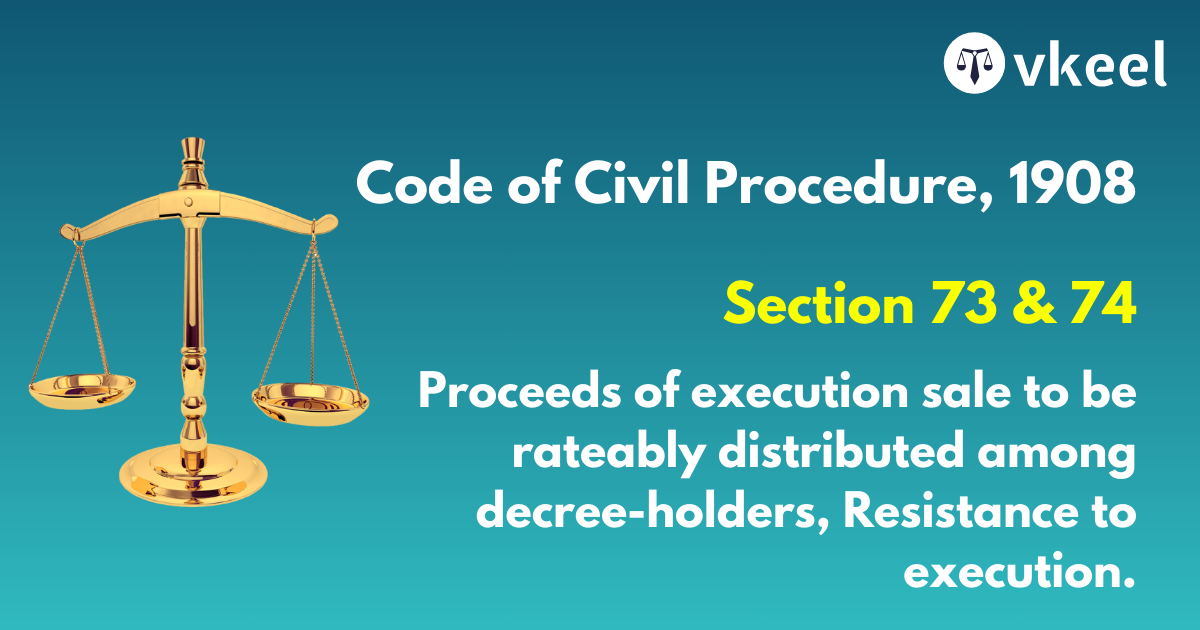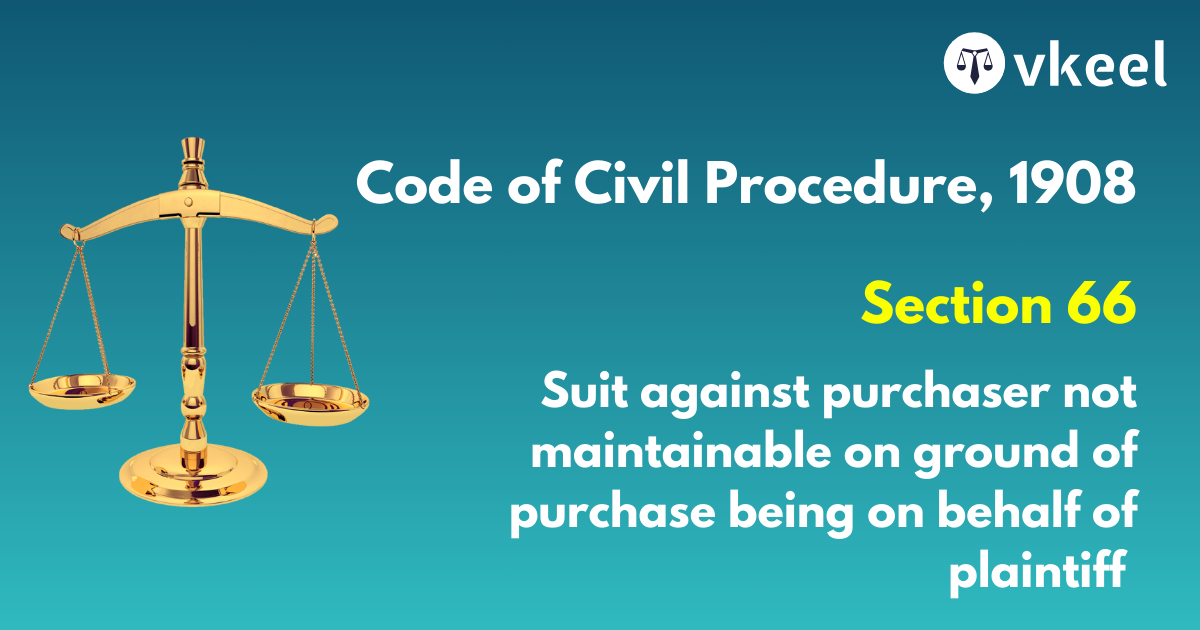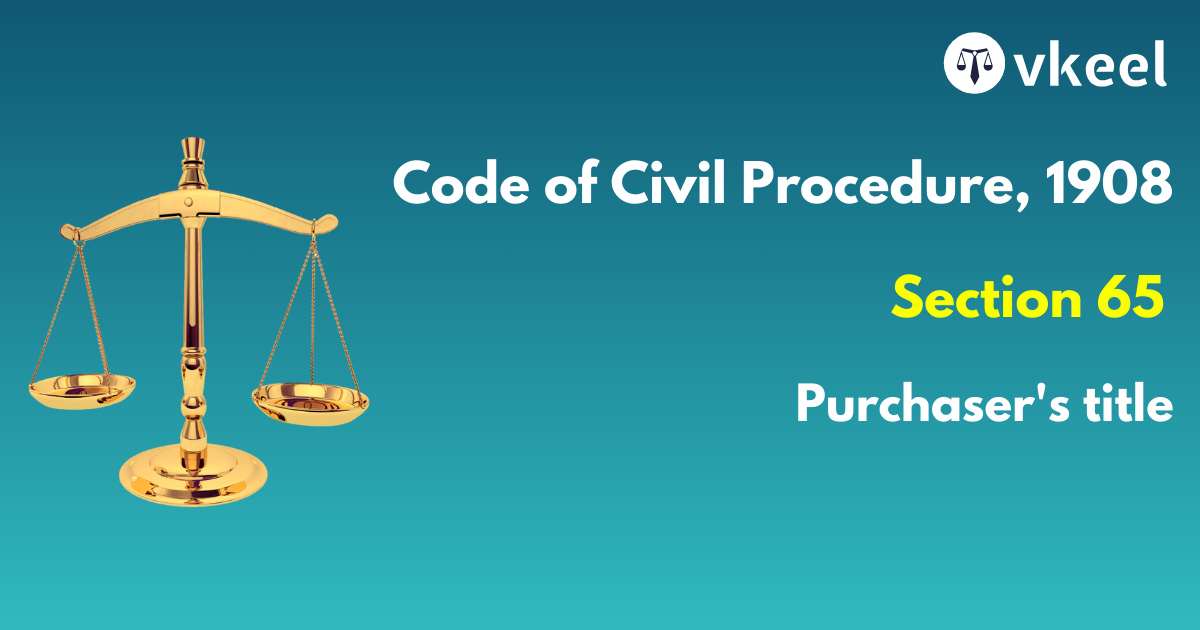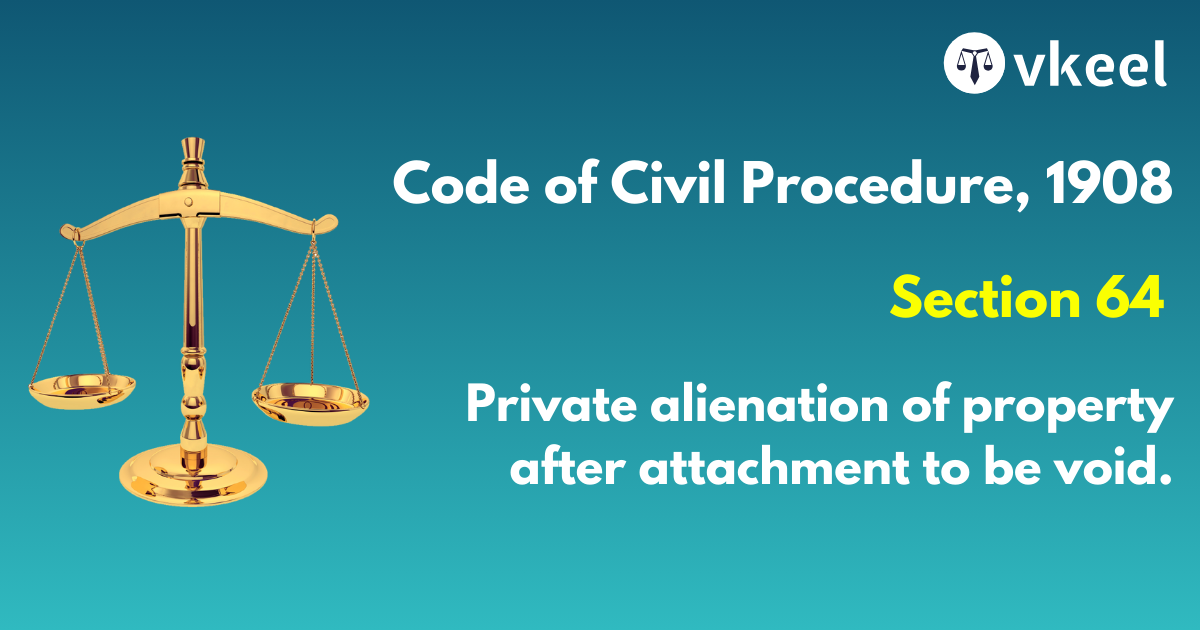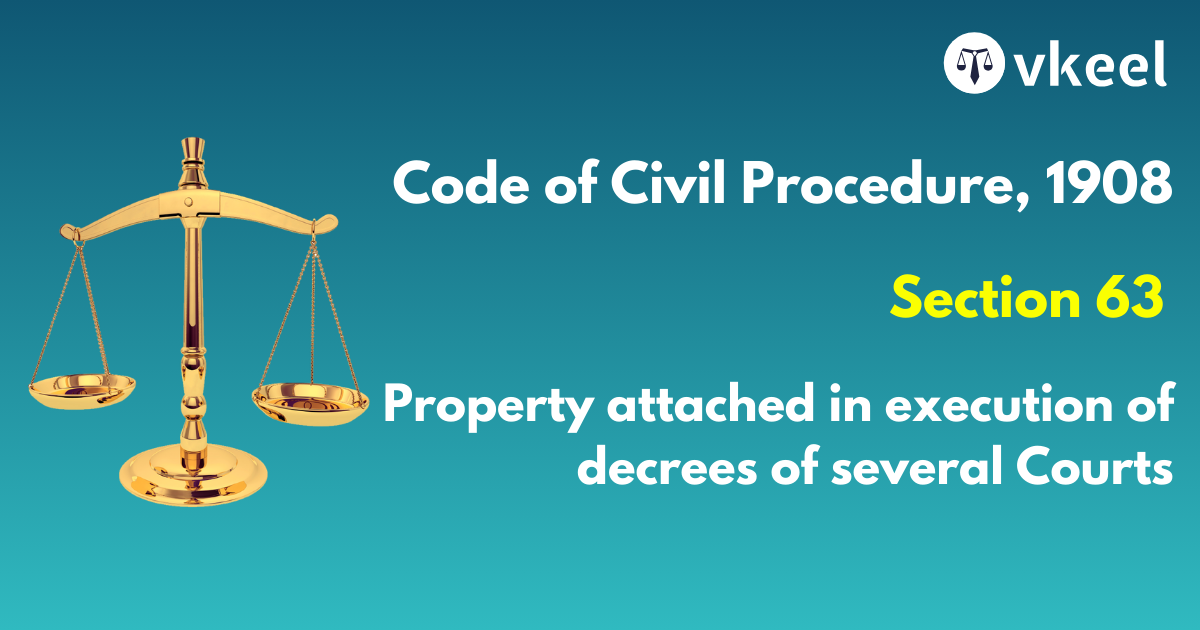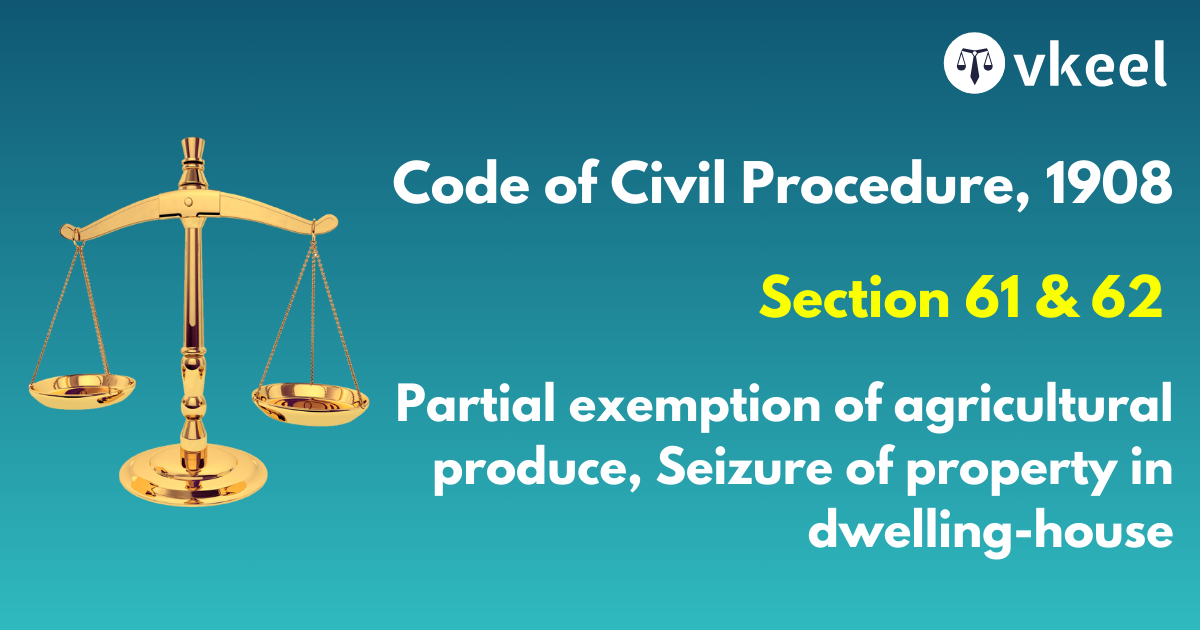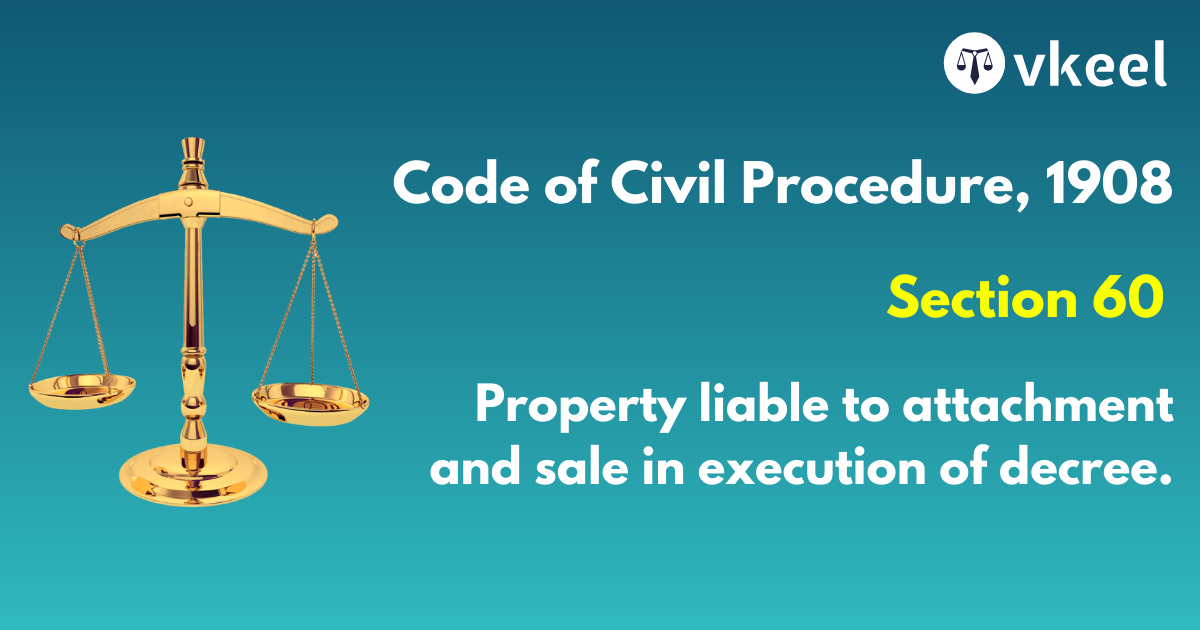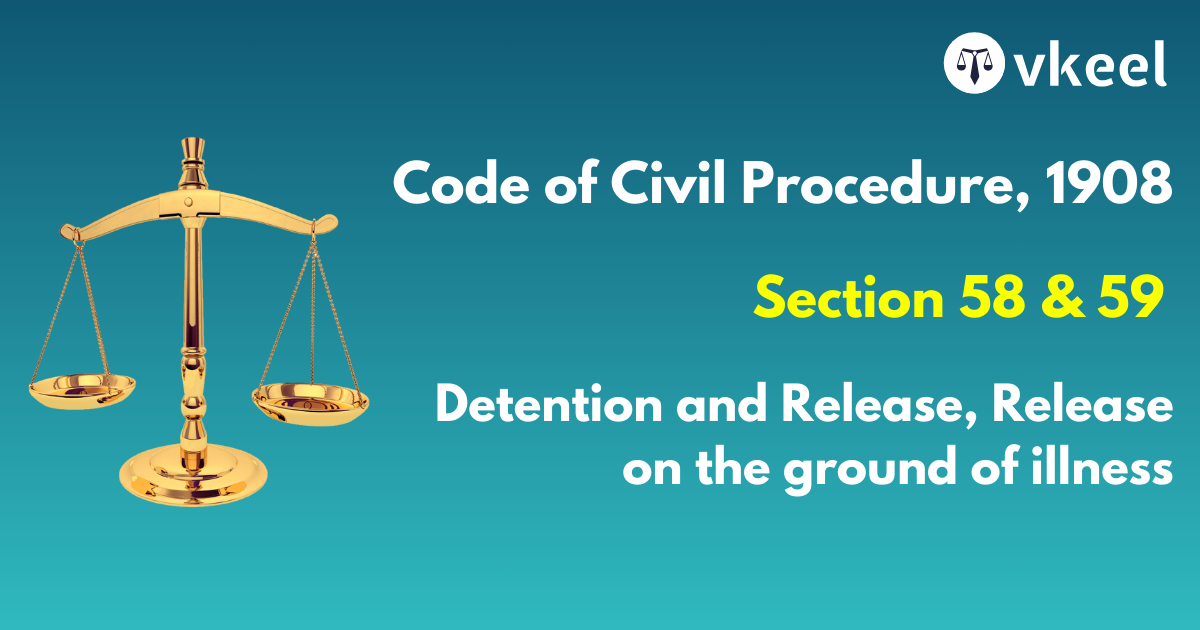Section 73 & 74 of the Code of Civil Procedure,1908
By Joy Puri
Introduction
The Section 73 of the Code of Civil Procedure entails about the equitable distribution among decree-holders when the property of a judgment debtor is sold or proceeds are realized through execution arising thereof.
Furthermore, the Section 73 of the Code of Civil Procedure, 1908 enumerates and envisages about the distribution of assets when a judgment debtor’s property is attached in execution of decrees from multiple courts related to the subject matter.
In a hypothetical scenario wherein the property is sold, and thereafter multiple decree-holders have claims against the same judgment debtor related to the subject matter, the Section 73 of the Code of Civil Procedure, 1908 puts a compulsion that the proceeds from the sale shall be distributed proportionally among all the decree-holders whose decrees have been executed against the same property.
Section 73 of the Code of Civil Procedure, 1908
Proceeds of execution sale to be rateably distributed among decree-holders-
(1) Where assets are held by a Court and more persons than one have, before the receipt of such assets, made application to the Court for the execution of decrees for the payment of money passed against the same judgment-debtor and have not obtained satisfaction thereof, the assets, after deducting the costs of realization, shall be reteably distributed among all such persons;
PROVIDED as follows-
(a)where any property is sold subject to a mortgage or charge, the mortgage or incumbrancer shall not be entitled to share in any surplus arising from such sale;
(b)where any property liable to be sold in execution of a decree is subject to a mortgage or charges the Court may, with the consent of the mortgagee or incumbrancer, order that the property be sold free from the mortgage or charge, giving to the mortgagee or incumbrancer the same interest in the proceeds of the sale as he had in the property sold;
(c)where any immovable property is sold in execution of a decree ordering its sale for the discharge of an incumbrance thereon, the proceeds of sale shall be applied-
first, in defraying the expenses of the sale;
secondly, in discharging the amount due under the decree;
thirdly, in discharging the interest and principal moneys due on subsequent incumbrances (if any); and
fourthly, rateably among the holders of decrees for the payment of money against the judgment debtor, who have, prior to the sale of the property, applied to the Court which passed the decree ordering such sale for execution of such decrees, and have not obtained satisfaction thereof.
(2)Where all or any of the assets liable to be rateably distributed under this section are paid to a person not entitled to receive the same, any person so entitled may sue such person to compel him to refund the assets.
(3)Nothing in this section affects any right of the Government.
Section 74 of the Code of Civil Procedure,1908
Resistance to execution.
Where the Court is satisfied that the holder of a decree for the possession of immovable property or that the purchaser of immovable property sold in execution of a decree has been resisted or obstructed in obtaining possession of the property by the judgment-debtor or some person on his behalf and that such resistance or obstruction was without any just cause, the Court may, at the instance of the decree-holder or purchaser, order the judgment-debtor or such other person to be detained in the civil prison for a term which may extend to thirty days and may further direct that the decree-holder or purchaser be put into possession of the property.
Landmark Case Laws
Laxminarayan Vs Ram, 1971
Section 73(1) is in terms applicable only where property has been attached and sold or a prohibitory order has been served and assets received in the executing court at the instance of one decree-holder only and the other decree-holders merely apply for execution. Where more than one decree-holder gets the same property attached or get a prohibitory order served on the same money belonging to the judgment-debtor held in the custody of a public officer or court the provisions of section 63 become applicable.
Ghisulal Vs Todarmull, 1922
The question of rateable distribution necessarily arises in execution proceedings, but in order that section 73 may apply it is not necessary that assets to be distributed should be realised by levy of execution. Decretal amount paid into court voluntarily to avoid execution or in satisfaction of decree would be assets.
Urban & c Ltd Vs Honavar & c Ltd, 1940
Where a creditor attached the undivided interest of a Hindu coparcener debtor in joint property and the interest is sold after the death of the debtor, other decree-holders of the same debtor who have not obtained attachment of the interest during his lifetime cannot claim rateable distribution from the sale proceeds.
Kancharla Vs Thota, 1984
The alteration has resulted in the inclusion of several kinds of assets which were excluded by the old section 295 of 1882 Code and therefore decisions under that section should be considered before their application. Order rejecting decree-holder’s claim for rateable on ground that it has not withdrawn his execution posting in parent court before filing memo claiming rateable is improper.
Imp Bank Vs Balasubramania, 1945
Where the custody court and executing court are the same, two things must take place: (1) As the custody court, it should determine that there was no objection to transfer the amount necessary to pay the decree-holder attaching the fund; and (2) there must be an order by the custody court transferring the amount to the credit of the first attaching creditor’s suit which it is engaged in executing. It is then only there could be receipt of assets within section 73. Procedure where custody court and executing court are different discussed.
Balmer Lawrie & Co Vs Jadu, 19 Cal WN 1202
In a case it has been held that the addition of the word “passed” in the present Code has made it essential that the decrees should be passed against the “same judgment-debtor” and it is therefore a matter for consideration whether the earlier decisions are affected by the addition. One decree against D M and another against the firm of which D M was a partner were held not decrees passed against the same judgment-debtor.
Dena Bank Vs Bhikhabhai Prabhudas Parekh & Co, 2000
The principle of priority of government debts is founded on the rule of necessity and of public policy. The basic justification for the claim for priority of State debts rests on the well-recognised principle that the State is entitled to raise money by taxation because unless adequate revenue is received by the State, it would not be able to function as a sovereign Government at all. It is essential that as a sovereign, the State should be able to discharge its primary governmental functions and in order to be able to discharge such function efficiently, it must be in possession of necessary funds and this consideration emphasizes the necessity and the wisdom of conceding to the State, the right to claim priority in respect of its dues.
Conclusion
Therefore to conclude, the Section 73 of the Code of Civil Procedure has come into force in order ensure that all creditors with valid decrees are treated fairly and share equally in the proceeds according to their respective claims thereafter preventing any one creditor from gaining an unfair advantage over others with regards to the subject matter.
To boot up the Section 73 of the Code of Civil Procedure holds a fair mechanism to prevent one decree-holder from receiving the entire sale amount to the detriment of others who also have valid claims.
Disclaimer:
The information provided in the article is for general informational purposes only, and is not intended to constitute legal advice or to be relied upon as a substitute for legal advice. Furthermore, any information contained in the article is not guaranteed to be current, complete or accurate. If you require legal advice or representation, you should contact an attorney or law firm directly. We are not responsible for any damages resulting from any reliance on the content of this website.

